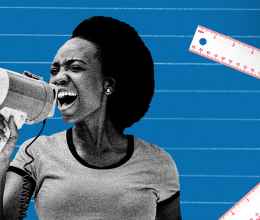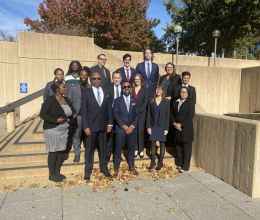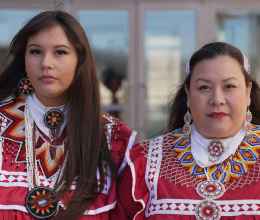
To protect students and teachers from unlawful censorship and racial discrimination, a lawsuit brought by civil rights and social justice groups must be allowed to proceed.
OKLAHOMA CITY— Today, a coalition of civil rights organizations representing multiracial teachers and students filed a brief pushing back against the state of Oklahoma's efforts to stall litigation in H.B. 1775, a classroom censorship law that unconstitutionally restricts discussions about race and gender in K-12 public schools and higher education.
Earlier this year, in a motion for judgment on the pleadings, the Oklahoma Attorney General, State Board of Education, and other state officials sought to dismiss the group’s lawsuit, the first federal complaint of its kind against a classroom censorship law. In their response, plaintiffs argued that their lawsuit provided detailed and disturbing facts to support claims that the law impinges on educators’ free speech rights and academic freedom, violates students’ right to information, and is racially discriminatory. The law is also unconstitutionally vague and a threat to our First and 14th Amendment rights.
The brief opposing the state’s attempts to stall litigation was filed by the Lawyers’ Committee for Civil Rights Under Law, the American Civil Liberties Union, the ACLU of Oklahoma, and pro bono counsel Schulte Roth & Zabel LLP on behalf of plaintiffs the Black Emergency Response Team (BERT); the University of Oklahoma Chapter of the American Association of University Professors (OU-AAUP); the Oklahoma State Conference of the National Association for the Advancement of Colored People (NAACP-OK); the American Indian Movement (AIM) Indian Territory on behalf of itself and its members who are public school students and teachers, a high school student, and Oklahoma public high school teachers Anthony Crawford and Regan Killackey.
“We will not be deterred by the state’s latest obstructionist effort to brush aside the severe consequences of H.B. 1775, but double-down on our commitment to strike down this law that is unconstitutionally silencing important discussions about systemic racism, implicit bias, and the rich perspectives and lived experiences of Black, Indigenous, and LGBTQ+ Oklahoman,” said Genevieve Bonadies Torres, associate director of the Educational Opportunities Project with the Lawyers’ Committee for Civil Rights Under Law. “Our courageous clients must be heard on their constitutional claims that strike at the heart of our education system, and the very functioning of our democracy.”
H.B. 1775 has caused school districts to strike books by Black and female authors from reading lists, while K-12 teachers and university professors are changing their curricula to avoid discussions about race, racism and gender. Multiple Oklahoma public schools have also scaled back or eliminated their diversity, equity, and inclusion trainings for teachers and strategic plans. These actions illustrate how, if not challenged, H.B 1775 will continue to suppress the speech of Black, Indigenous, LGBTQ+ people and other historically marginalized groups.
“As we predicted when we filed our lawsuit, H.B 1775 creates confusion for educators and students, further marginalizes the underserved and tragically jeopardizes the legitimacy of our entire education system,” said Mary Topaum, director of the American Indian Movement Indian Territory. “Oklahoma should be doing more–not less–to create inclusive environments for all students including Native American students.”
“The longer H.B. 1775 stays in place the harder it will be for the next generation to understand the contentious moments in history that still shape our nation today,” said Anthony R. Douglas, president of the Oklahoma State Conference NAACP. “Our country needs to acknowledge and reckon with its history of systemic racism — this includes being able to teach and talk about these concepts in our schools.”
“In Oklahoma, we have seen the devastating impact that H.B. 1775 has had on our educators and students as they have endured over a year of fear and censorship,” said Megan Lambert, legal director of the ACLU of Oklahoma. “It is critical to protect their right to talk and learn about race and gender in our schools and to ensure Oklahomans have access to an education that includes the legacy of discrimination and lived experiences of Black and Brown people, women and girls, and 2SLGBTQ+ individuals. Censoring education about issues of race and racism hurts all students, especially students from marginalized communities, our society, and our state.”
“HB 1775 is so poorly drafted — in places it is literally indecipherable — that districts and teachers have no way of knowing what concepts and ideas are prohibited,” said Emerson Sykes, staff attorney with the ACLU Speech, Privacy, and Technology Project. “The bill was intended to inflame a political reaction, not further a legitimate educational interest. These infirmities in the law are all the more troubling because the bill applies to public colleges and universities, where the First Amendment is especially protective of academic freedom.”




